Results
-
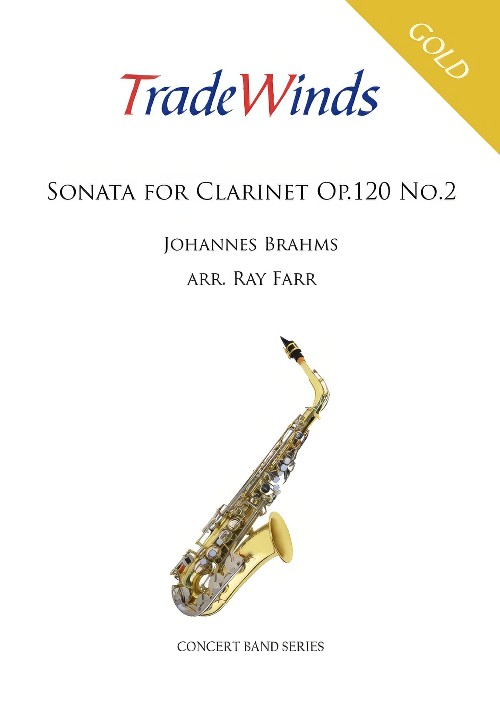 £14.95
£14.95Sonata for Clarinet Op.120 No.2 in Eb (Concert Band - Score Only) - Brahms, Johannes - Farr, Ray
'Scaff' is an adaptation of the famous 4th movement of the Symphonie Fantastique by Berlioz in swing style. The story of the 'March to the scaffold' is a tragic one where the subject, in a depressive state over a love interest, overdoses on opium. He dreams that he has killed his beloved and after his procession to the scaffold is now witnessing his own death. This arrangement doesn't really reflect those tragic circumstances but instead redresses this great tune into a toe-tapping 'big band' number.
Estimated dispatch 7-14 working days
-
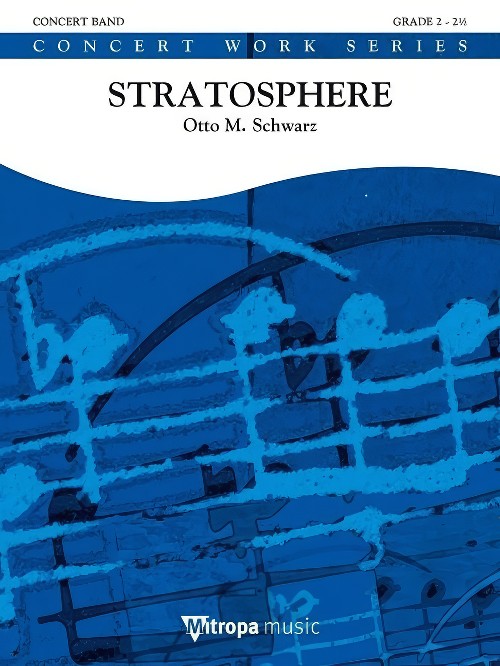 £94.99
£94.99Stratosphere (Concert Band - Score and Parts) - Schwarz, Otto M.
What do the American Joseph Kittinger and the Austrian Felix Baumgartner have in common? They both jumped from over 30km high with a parachute. While Kittinger's attempt on 16 August 1960 was from a height of 'only' 31,333 meters, Felix Baumgartner broke this record on 14 October 2012 with a breath-taking 38,969 meters. This composition Stratosphere describes the adventure, from climbing into the capsule with help of a balloon, to the short pause in the stratosphere, and the jump, the turbulence during the free-fall descent, and finally the opening of the parachute and the safe landing.Duration: 6:00
Estimated dispatch 7-14 working days
-
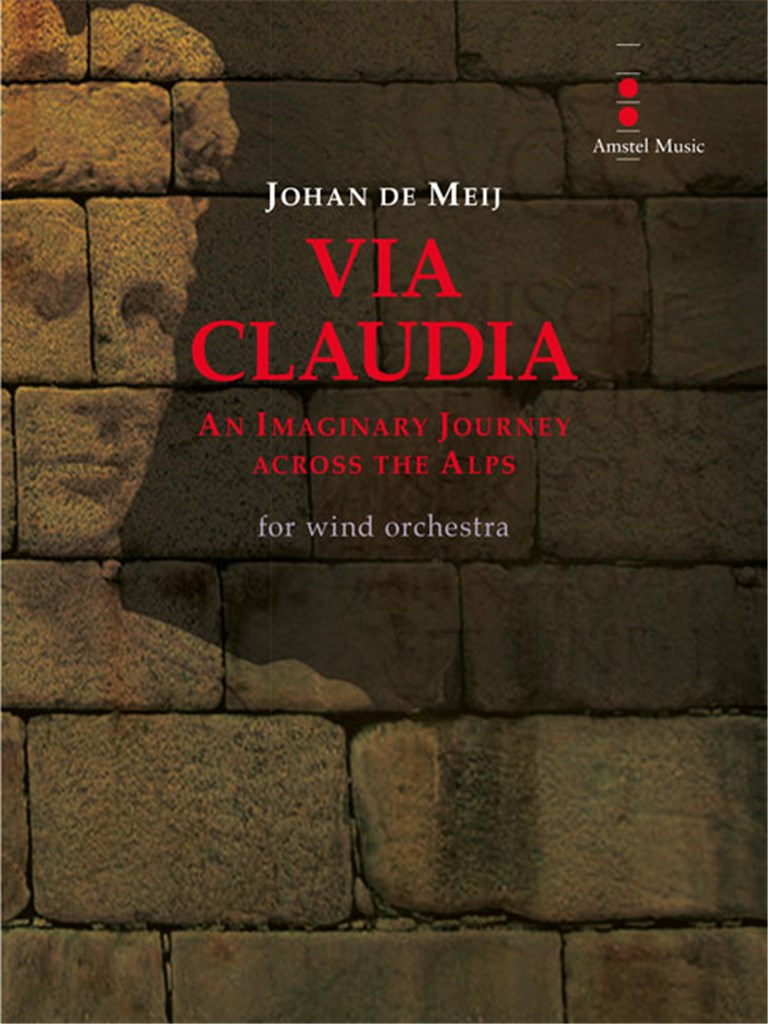 £148.00
£148.00Via Claudia (Concert Band) - Score and Parts - De Meij, Johan
An Imaginary Journey Across the AlpsWith Via Claudia, the band takes the audience with it on a tour of the Alps. The journey begins on a foggy night near Venice and leads in a solemn procession over steep mountain passes up to the summit, where the sun breaks through and a glorious panorama is revealed. Alpine meadows in full bloom, the echo of an alphorn and brilliant fanfares in the brass accompany the onward journey to Augsburg, where the arrival is celebrated with a triumphal anthem!Duration: 15.00
Estimated dispatch 7-14 working days
-
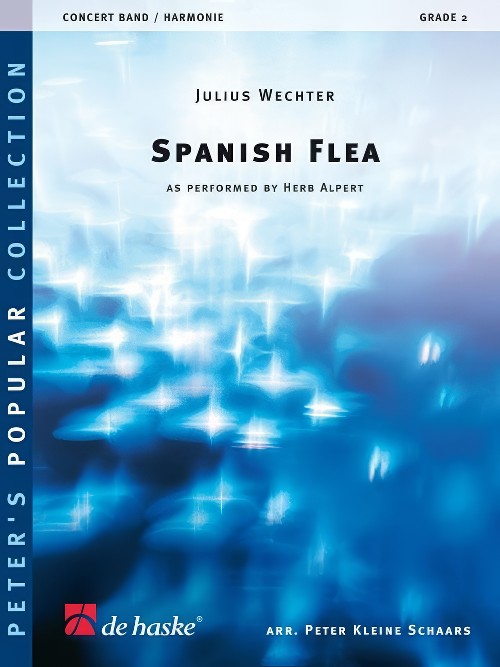 £69.99
£69.99Spanish Flea (Concert Band - Score and Parts) - Wechter, Julius - Schaars, Peter Kleine
Julius Wechter wrote Spanish Flea in 1967 for the renowned trumpeter and bandleader Herb Alpert, who made the tune famous. The title itself might be less familiar, but the tune is known the world over through radio, tv and films such as Beverly Hills Cop and The Simpsons or simply as catchy, up-beat background music. A guaranteed smash hit for every concert!Duration: 2:15
Estimated dispatch 7-14 working days
-
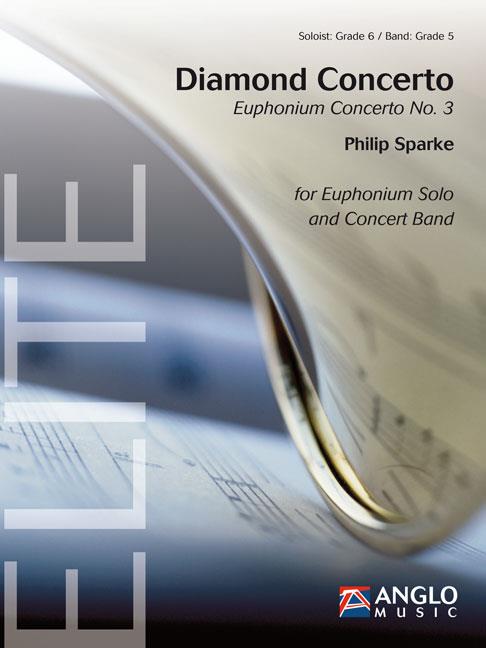 £209.99
£209.99Diamond Concerto (Euphonium Concerto No.3) (Euphonium Solo with Concert Band - Score and Parts) - Sparke, Philip
Diamond Concerto was commissioned by Musikverein Morschied from Germany - Dr. Eric Grandjean, conductor - for a special concert featuring Steven Mead as guest soloist. Together they gave the world premiere on 28th April 2012 in the town theatre of Idar-Oberstein. The commission is a highlight in the 30-year friendship between composer and soloist, which has included many mutual CD projects and concerts and, now, a concerto. Sparke had Steven Mead's special euphonium sound in his head throughout the composition process and made free use of the variety of styles which the world-renowned virtuoso has made his own during his highly successful solo career.The village of Morschied lies to the west of Frankfurt am Main in the area known as the German Road of Precious Stones, which is famous for its thriving gem industry. Because of this it was decided to give the commission a local connection by choosing the title, Diamond Concerto. Each of the three movements is named after a famous diamond:Earth Star is rather stern in mood, opening with a free fantasy for the soloist over a static chord from the band. This leads to an Allegro Moderato in minor mode where small motives are gradually repeated and developed by both band and soloist.Ocean Dream uses a varied quote from the composer's Music for Battle Creek, including a melting slow melody that was originally written with Steven Mead in mind.Blue Heart was written, at Steven Mead's suggestion, in bebop style and takes the form of a jazz waltz. The quasi-improvisatory central section features a call-and-response passage for the soloist and upper woodwinds.Duration: 15:45
Estimated dispatch 7-14 working days
-
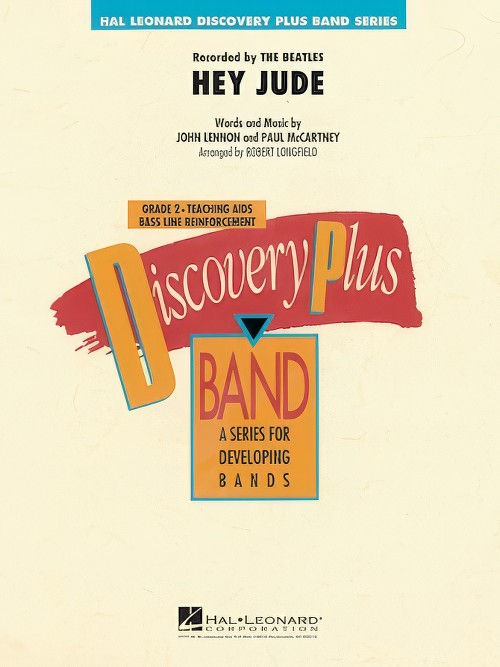 £54.99
£54.99Hey Jude (Concert Band - Score and Parts) - Lennon & McCartney - Longfield, Robert
Recorded by the Beatles in 1968, this classic ballad has remained popular through the years. This arrangement for young players opens with a trumpet solo followed by a statement in the woodwinds. The lower voices then get a chance at the melody before the full band takes over on the familiar chorus. Sure to be a favourite with your audience as well as your students.
Estimated dispatch 7-14 working days
-
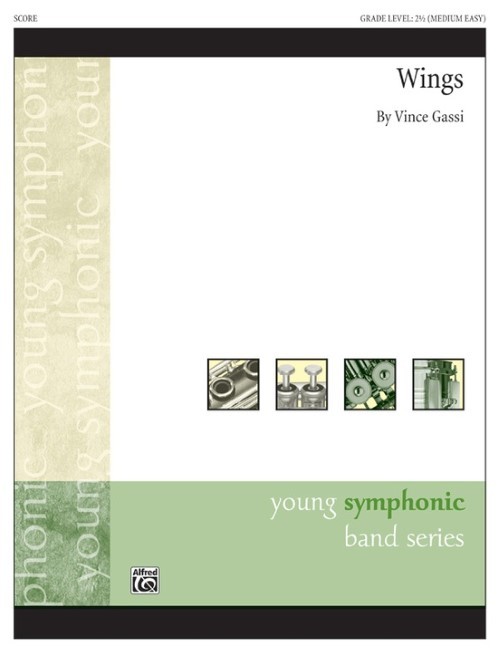 £53.95
£53.95Wings (Concert Band - Score and Parts) - Gassi, Vince
The men and women of the Royal Canadian Air Force are the inspiration behind this original composition by Vince Gassi. The first work in his Armed Forces Suite, it takes off with a bright, spirited theme first heard in the flutes. The rest of the ensemble soon joins in the maneuvers and offers a fuller tactical report. Clarinets take over with dignity, providing a lyrical contrast, and are supported by a stately accompaniment. It isn't long before we start to feel the "spirit of adventure" building to a contrasting section conveying images of stealth and intrigue. Covert operations lead finally to a restatement of the opening theme by the brass with flute and clarinet obligato. Interlace with fragments from the covert section and we are carried to a soaring conclusion. If you are looking for a spirited concert opener or closer, look no further!Duration: 3:15
Estimated dispatch 7-14 working days
-
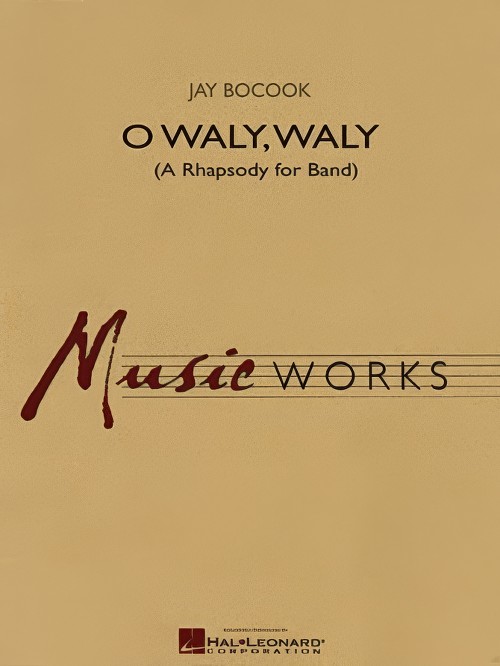 £79.99
£79.99O Waly Waly (A Rhapsody for Band) (Concert Band - Score and Parts) - Bocook, Jay
Dating from the 1600's, the folk song O Waly, Waly (commonly known as The Water is Wide) forms the basis for this well-crafted rhapsody for band. The lyrical opening section features solos on flute and euphonium, as a four-note motif common to this song and also "Carolina" (South Carolina's official song) is developed. This motif unifies the entire work. A Celtic flavoured Allegro takes over using this fragment, which leads ultimately to a grand Maestoso section for the entire ensemble. A creative and dynamic work!Duration: 5:00
Estimated dispatch 7-14 working days
-
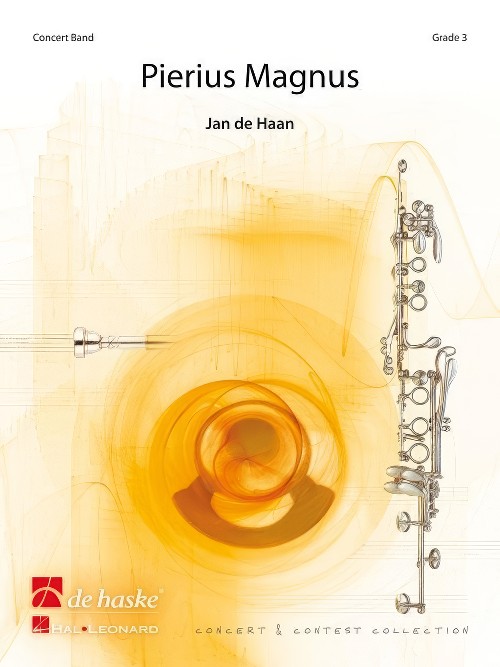 £144.99
£144.99Pierius Magnus (Concert Band - Score and Parts) - De Haan, Jan
Pierius Magnus is a historical figure from the Friesland area of Holland. He was a farmer who became a resistance fighter against Dutch oppressors in around 1500. Whether Magnus was a hero or barbarian is still debatable, but composer Jan de Haan was fascinated by the exciting story and let it fuel his imagination. The protagonist is introduced with a capricious theme which is followed by "De Arumer Swarte Heap," the troops who took to the battlefields against the Dutch. An eerie calm takes over moments before Pier and his troops let their battle cries sound. The work ends as the disillusioned Pier retreats. A concert work overflowing with excitement!Duration: 9:00
Estimated dispatch 7-14 working days
-
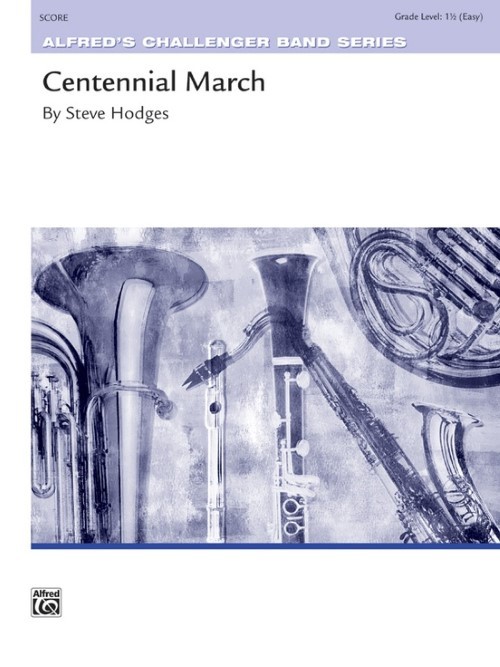 £46.95
£46.95Centennial March (Concert Band - Score and Parts) - Hodges, Steve
This uplifting march begins with the clarinets presenting the melody over a single snare drum accompaniment. The textures increase as the melody is developed, leading to a heavier minor section featuring strong lines by the low brass and woodwinds. A modified "roll-off" by the percussion section leads to a seamless modulation and the final presentation of the melody. A dynamic augmentation of the melody brings the march to a stirring conclusion.Duration: 2.45
Estimated dispatch 7-14 working days
